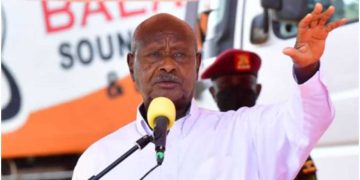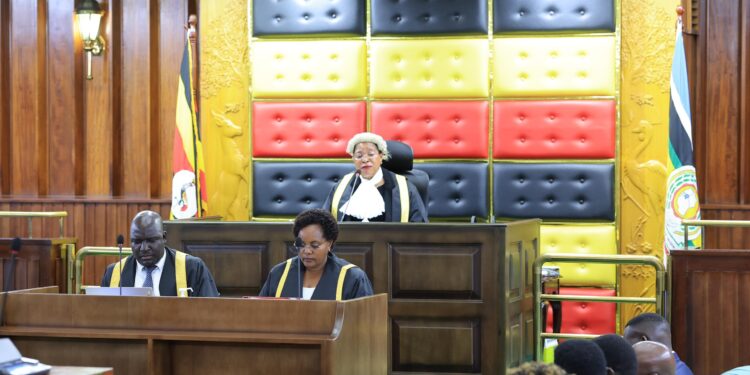Kampala, Uganda – May 13, 2025.
A new proposed law—the Uganda People’s Defence Forces (UPDF) Amendment Bill 2025—is raising eyebrows across legal and civil rights communities in Uganda. The bill, tabled in Parliament this week by Defence Minister Jacob Oboth Oboth, seeks to overhaul the existing UPDF Act, Cap. 330, with wide-ranging implications for military and civilian legal boundaries.
Military Trials for Civilians: A Hot Button Issue.
At the center of the controversy is Clause 117A, a new provision that allows civilians to be tried in military courts under specific conditions. These include being found in unlawful possession of military-grade equipment or uniforms, or involvement in selling such items without authorization.
Although the clause is framed as a security measure, critics argue that it contradicts a 2021 Supreme Court ruling which declared the trial of civilians in military courts unconstitutional—except in exceptional circumstances.
“This bill attempts to bypass constitutional protections under Article 28,” said a constitutional lawyer who asked not to be named. “Civilian jurisdiction should be preserved in civil courts.”
Reforms Within the Ranks.
Beyond the controversial court clause, the bill proposes various administrative reforms within the UPDF. These include the establishment of a Health Care Service and Medical Board to manage the welfare of service members, as well as changes to the structure of the armed forces.
The bill also seeks to repeal the outdated Uganda Veterans Assistance Board Act, consolidating veterans’ affairs under the Ministry of Defence.
A Response to Legal Pressure?
The UPDF Amendment Bill 2025 follows the withdrawal of an earlier version presented in December 2024. That version was pulled after facing criticism for ignoring the Supreme Court’s stance on military trials for civilians. This latest draft appears to acknowledge the court’s ruling but has been accused of undermining its intent.
Public Reaction Mixed.
Human rights organizations, legal practitioners, and civil society actors have voiced concern. While some acknowledge the need for better regulation around military materials in civilian hands, many warn of potential misuse of military courts to suppress dissent or fast-track prosecutions without adequate legal safeguards.
Despite these concerns, the government maintains that the bill strengthens national security and addresses administrative gaps in the UPDF framework.
What’s Next?The bill is currently in its first reading phase in Parliament. Committee scrutiny and public consultations are expected in the coming weeks. Activists have urged MPs to consider amendments that uphold constitutional protections while balancing national security needs.
Stay with mrupdates.com for real-time developments on this critical legislative process.















































Discussion about this post